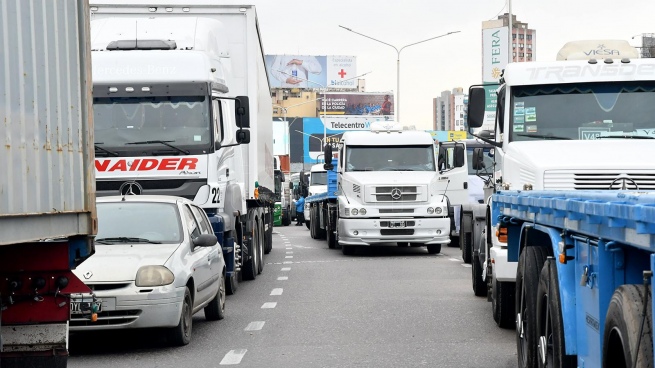The last week in energy matters was marked by the swings that occurred around diesel, which had its critical point on Tuesday in the Buenos Aires town of Daireaux when a protest by transporters who denounced the lack of diesel and overprices ended in the murder of a truck driver who wanted to evade the picket line, and the call by the Agricultural Liaison Commission for a cessation of activities for July 13, while the government trusts that the supply will be normalized in the coming days.
The fatal victim is Guillermo Andrés Jara, who died after being hit by a stone whose impact caused him to lose control of his vehicle; and the suspects for the act are Darío Javier Martin (46 years old), Fabián Paredes (44) and Federico Javier Fernández (34).
The global context
The war between Russia and Ukraine caused a general increase in the prices of commodities, especially grains and fuels, and a consequent rise in inflation throughout the world, in addition to supply problems.
Thus, the local production of diesel is not enough to supply the domestic market, which generated its shortage and the protests of carriers in different parts of the country.
President Alberto Fernández referred to the case and asked that those responsible for the trucker’s death “take responsibility.”
“We are proposing a channel for dialogue with carriers. We must understand that the State does not have the tools to be everywhere at the same time”added the president in statements to C5N.
The position of the unions
From the union side, the CGT repudiated what happened and asked the Justice for “speed” so that “the facts are immediately clarified”, while one of its drivers, and also a leader of Truckers, Pablo Moyano, declared the “state on alert until justice is served”.
Meanwhile, the governor of Salta, Gustavo Sáenz, after meeting with the chief of staff, Juan Manzur, declared that the coordinating minister recognized the diesel problem and told him that it will take “between 15 and 20 days.”
For his part, the Secretary of Energy of the Nation, Darío Martínez, assured that the sale of diesel oil at service stations grew by 23% last May compared to the same month of 2021, he highlighted that imports of that fuel made during the first five months of the year doubled compared to the same period in 2021, and assured that YPF and Shell unloaded “both imported shipments” in the last week.
Meanwhile, the Minister of Security, Aníbal Fernández, also spoke about it and assured that the purchases of diesel “have already been made”, with which “the problems with its lack will be resolved in the coming days”, although “there are some cities in the country where the issue has already been resolved,” he stressed.
After that same meeting, Manzur assured that the supply of gas oil “will be progressively normalized throughout Argentina” as a result of the actions taken by the Government.
Among them, Manzur stated, the increase in the percentage of biodiesel cut, the tax exemption for the importation of diesel and the arrival of “five ships” with fuel in the coming days.
The chief of staff also mentioned the increase in production of “the four refineries that exist in Argentina”, which “work 100% in the production of gasoil”.
However, the Liaison Commission of Agricultural Entities that same day called for a cessation of grain and meat marketing on Wednesday, July 13, considering that “access to diesel and fertilizers is urgent to avoid a total paralysis of the productive apparatus.”
Jorge Chemes, owner of Argentine Rural Confederations (CRA), declared that “concentrations of producers will be held in the different provinces, without cutting routes”, given “the need to have answers to all the measures”.
“Simultaneously, we are going to carry out a total commercialization cessation that will probably be for one day, although if we see the need it will be more,” added Chemes.
Given this, President Fernández maintained that the diesel issue “cannot be resolved with a strike” because it is “a problem that the world has.”
“In Argentina there is a lack of more for two reasons, because the increase in production means that more energy is consumed. We do not have the necessary diesel produced in Argentina as is being demanded,” said the president in statements to C5N.








